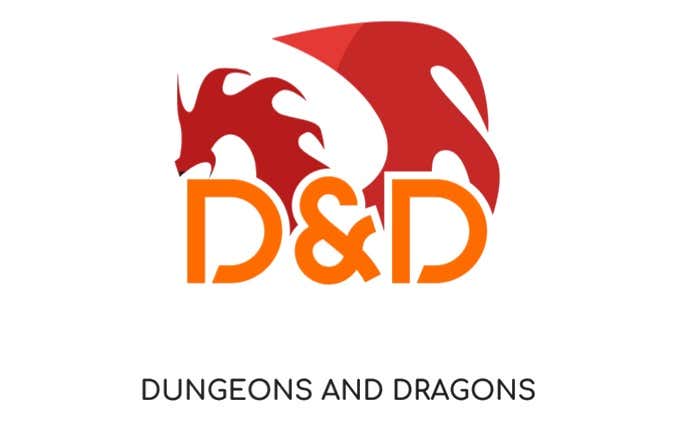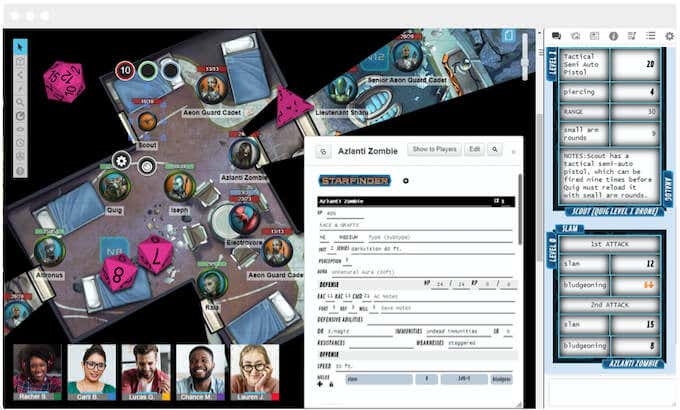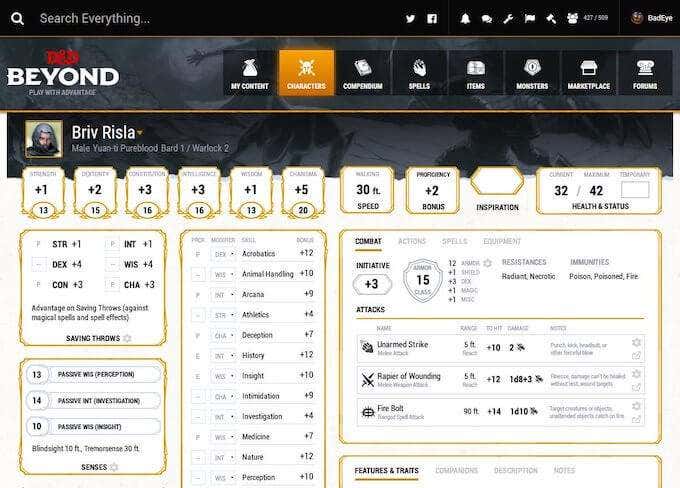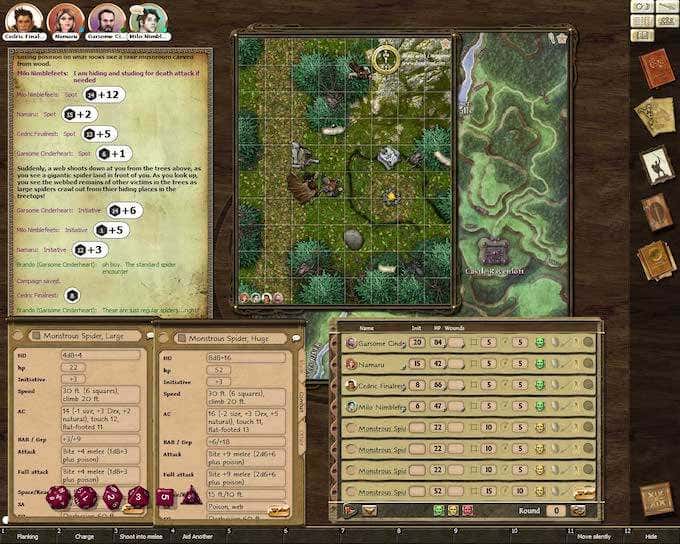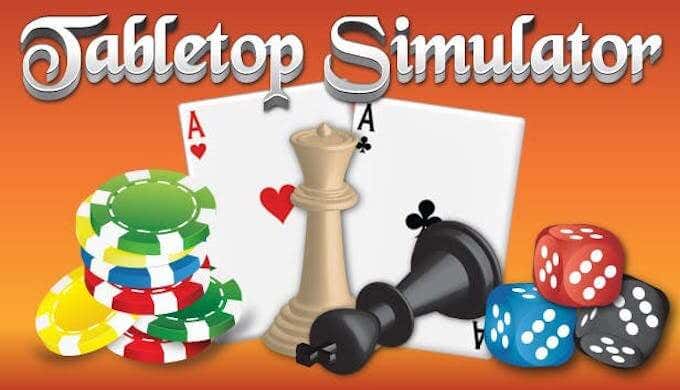Dungeons and Dragons has been a popular pastime since its inception in 1974, but its fifth edition revitalized the game and introduced thousands of new players to the concept of tabletop RPGS. It’s easy enough to get started playing, but not always so easy to find a group.
If you’re eager to start playing but you have no friends that are into the game—or you want to keep your social exposure to a minimum—there are multiple options to play DND online. These outlets are perfect for finding the right DND group for you. Just be ready to dive into Barovia.
How to Play DND Online
The key to a successful DND game is finding a platform that works for you. These are the best options.
Roll20
Roll20 is one of the most popular platforms for DND. Users can play more than just DND thanks to its extensive toolset. Players can set up custom character sheets, create custom items, and much more.
Rolls and damage are calculated automatically. All players have to do is click on the relevant skill and Roll20 shows the result. If it’s a hit, you can click the name of the attack to calculate damage. Organizers can even set up custom crit die rolls, while an easy-to-use compendium allows users to drag and drop spells into their character sheets.
Roll20 is free to sign up and play, even if you are creating a game for your friends. There is a monthly subscription at $5 and $10 that includes cloud storage, dynamic lighting, and much more. If you want access to the most advanced settings, you will need a subscription—but it isn’t necessary.
Roll20 has integrated voice and video chat, but you can disable this if you’d prefer to use Discord or another chat application.
DND Beyond and Discord
Another popular option among players is to create characters on DND Beyond, the official toolset for character creation from Wizards of the Coast. DND Beyond allows players to create characters through an easy, step-by-step process and automatically fills in all the mathematical aspects of DND.
Players can click their abilities to learn more about what a given spell does, calculate whether an attack hits or misses, and more. DND Beyond provides access to a compendium with all of the items, armor, spells, and other information in the game to make it easy to keep track of a character sheet.
Many campaigns happen because the DMs combine DND Beyond with Discord. Players can use voice chat to talk about what they’re doing and share the results of their rolls on DND Beyond. If all else fails, Discord bots make it possible to openly roll dice in a channel. The key, of course, is finding a game.
DND Beyond has a forum with a dedicated Looking for Players & Groups page. You can make a free account and take part in the discussions there. Most players are friendly—don’t be afraid to play with strangers.
Fantasy Grounds
While DND Beyond and Discord rely more on “theater of the mind” gameplay, Fantasy Grounds takes the “tabletop” aspects of tabletop gaming seriously. Like Roll20, Fantasy Grounds includes support for most major systems, and it has even more integrated rulebooks.
Fantasy Grounds is integrated with DMs Guild, a site that allows users to create their own campaigns, monsters, and much more. It’s one of the single best sources for homebrew content anywhere on the internet. If you’re looking for something you’ve never experienced before, DMs Guild likely has it.
The downside to Fantasy Grounds is that it has such a steep learning curve. While most of the system is automatic, it will take some time to learn to use. The Dungeon Master has to pay for the highest tier in order to host the game, or each player has to pay. This can add up to a major expense, especially for groups that want to keep their costs down.
Unlike Roll20, Fantasy Grounds is software that needs to be installed to your machine. It has integrated text chat, but no voice chat.
Tabletop Simulator
Tabletop Simulator is a popular Steam game that allows players to simulate almost any tabletop game. It includes classic games like chess and checkers, while community-made mods give access to Warhammer, Dungeons and Dragons, and much more.
Players need to have Steam (and have to purchase the game), but given how common Steam is, it’s a popular option. While it isn’t so easy to import source books into the game (and imported images can sometimes be distorted), if players have their own copies then Tabletop Simulator is a great option for creating maps.
It shows walls, doors, and much more, and because you don’t have to purchase miniatures you can have all the fun of a detailed map without the expense. Tabletop Simulator is designed for groups, too; it’s $20 for one purchase and $60 for four copies.
These four platforms are some of the best options for playing Dungeons and Dragons online, but if none of them work for you, don’t give up! There are a lot of other options available to you, too. Don’t be afraid to look and try out lesser-known outlets too.
